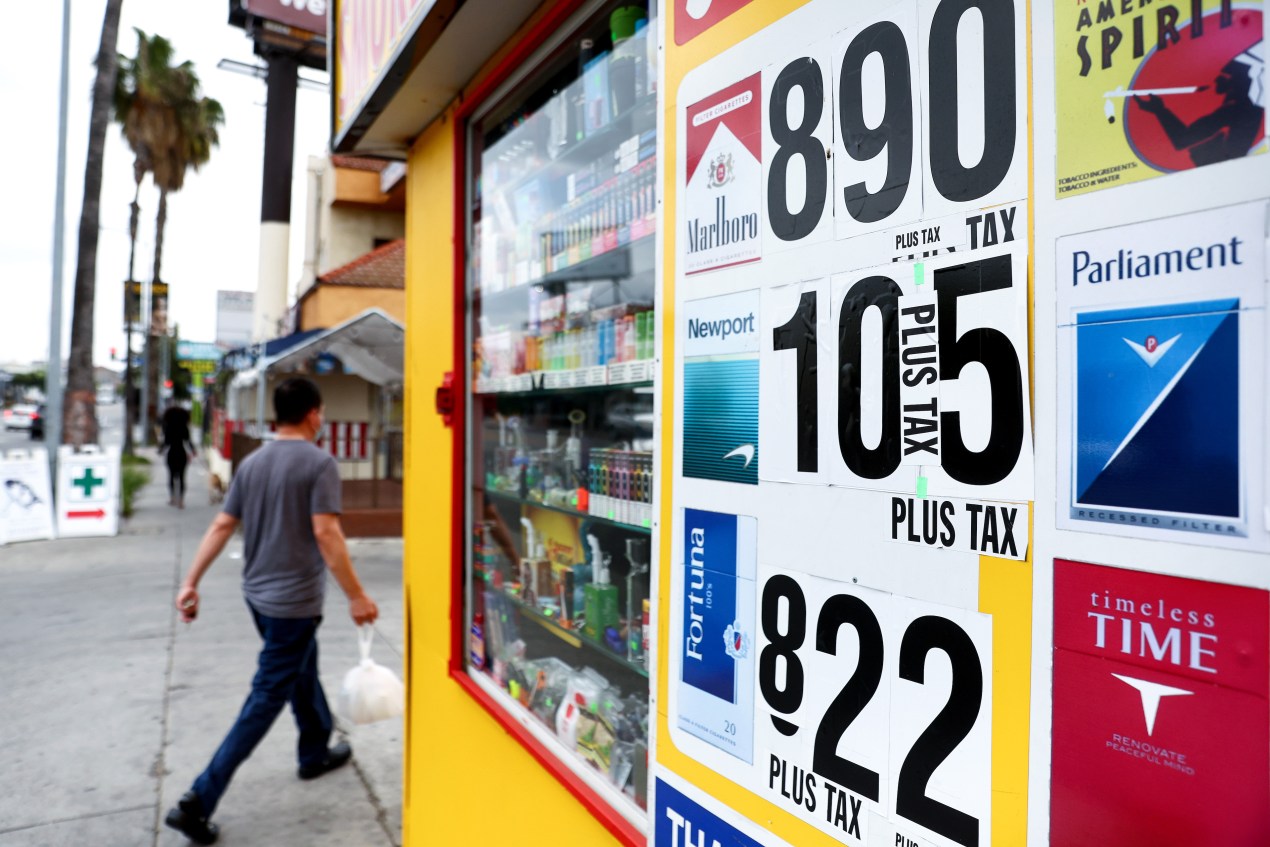California’s attorney general is warning two tobacco companies that their new cigarettes appear to violate a state ban on most flavored tobacco products that was upheld by voters last year.
Attorney General Rob Bonta sent letters to R.J. Reynolds and ITG Brands LLC, dated April 25, warning that the packaging and promotional materials for nine reformulated versions of Camel, Newport, and Kool cigarettes were likely against the law.
California’s ban includes menthol-flavored cigarettes, and the state said it determined after a review that the products are “presumptively flavored under the California flavor ban law.” It gave the companies until June 23 to respond.
The federal government last year announced plans to ban menthol cigarettes and flavored cigars, and tobacco companies’ response to the California law has been seen as a preview of how they would handle a national ban. Rhode Island, New Jersey, New York, and Massachusetts also ban flavored tobacco, which a 2021 survey by the Centers for Disease Control and Prevention found was favored by young smokers. The mint flavor in menthol cigarettes has a cooling effect that can blunt harsh cigarette smoke, making it easier to start smoking.
R.J. Reynolds, which produces the seven Camel and Newport varieties challenged by the state, said Thursday that its cigarettes comply with the law and that it will work with the attorney general’s office to make sure they can still be sold in California.
The cigarettes “do not impart a distinguishable taste or aroma other than tobacco,” the company said. “We market these products to clearly indicate that they are non-menthol.”
R.J. Reynolds said California’s review of its cigarettes was based on packaging and marketing materials, not the cigarettes themselves. ITG Brands did not respond to repeated requests for comment.
The attorney general’s letters include examples of marketing materials and a side-by-side comparison of the similar-looking menthol and non-menthol cigarette packaging, and assert that the companies promote the new varieties “as substitutes or replacements” for menthol-flavored cigarettes.
Camel promises “smooth tobacco flavor and a crisp smoking experience,” while Kool’s marketing says it is “still bold” and “still smooth.”
“Never compromise, California,” urges the Newport brand. “Introducing what’s next in fresh. The non-menthol for menthol smokers.”
California’s ban was approved by state lawmakers in 2020, but it was delayed when tobacco companies gathered enough signatures to put the issue before voters. After it was upheld by nearly two-thirds of voters last November, it took effect on Dec. 21.
The Campaign for Tobacco-Free Kids called the attorney general’s letters “a significant step forward” that “is sending a clear message that California is serious about enforcing the law and will not tolerate the tobacco industry’s efforts to evade it.” It said the new cigarettes “have a cooling flavor similar to menthol.”
The attorney general’s office cited a portion of the law that creates “a rebuttable presumption that a tobacco product is flavored” if the manufacturer markets it as being flavored. That includes using labeling or packaging “to explicitly or implicitly communicate that the tobacco product has a characterizing flavor.”
The specific products being challenged are Kool Non-Menthol, Kool Blue Non-Menthol, Camel Crisp, Camel Crush Oasis Silver, Camel Crush Oasis Blue, Camel Crush Oasis Green, Newport Non-Menthol Green, Newport EXP Non-Menthol Mix, and Newport EXP Non-Menthol Max.
This article was produced by KFF Health News, which publishes California Healthline, an editorially independent service of the California Health Care Foundation.
